|
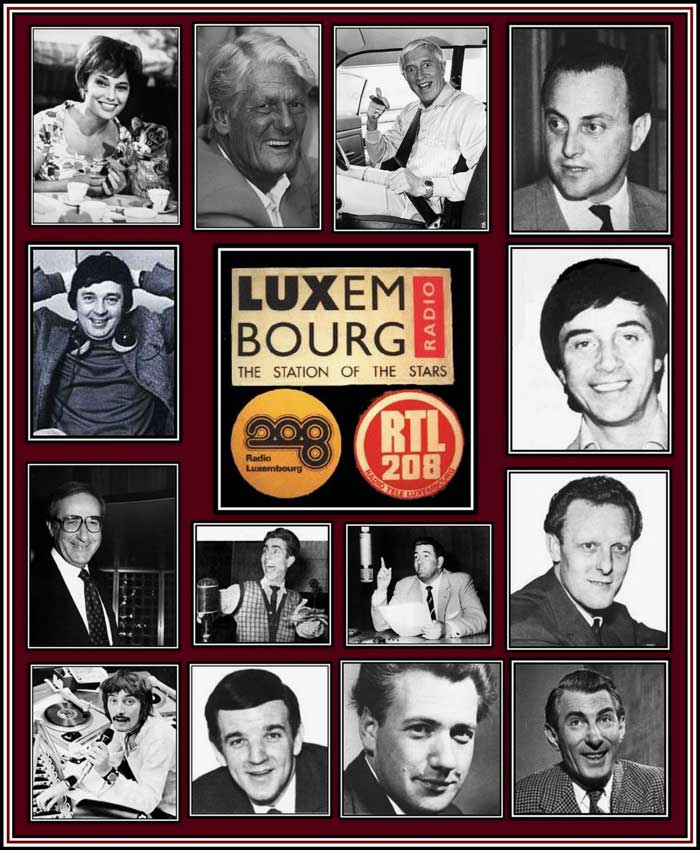
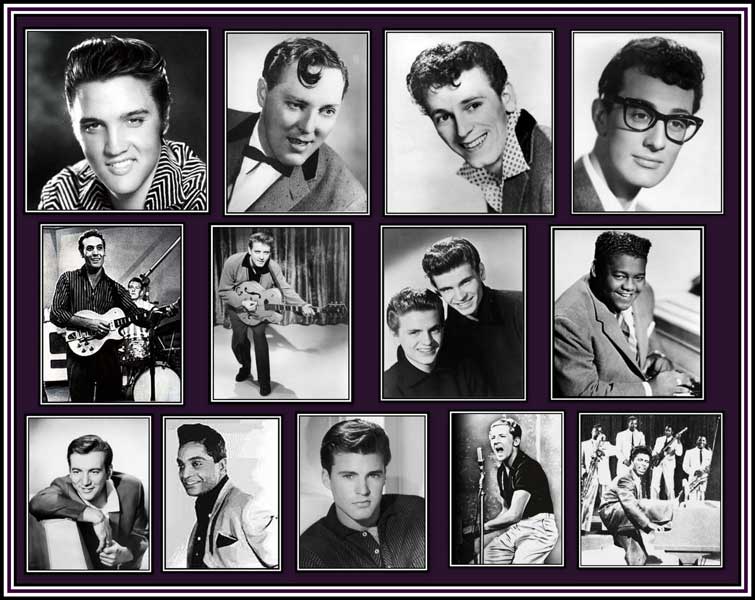
With the
advent of rock
‘n’ roll, the
flavour of the
English Language Service
of Radio Luxembourg changed
and became the place
to hear the music.
And millions of kids
across the country tuned
in and our world was
never the same. As I
remember, request shows
and game shows filled the
air from about 7 p.m.
until about 10 p.m. I
rarely listened to
anything during those
early hours, as I was
still very much a fan of
the comedy shows,
serials and plays produced
by B.B.C Radio.
But at 10 p.m., rain
or shine, like those
millions of other kids, I
was tuned to 208
– on the dial –
the station of the stars and
was ready to hear the
music!
I would
listen either on an old
radio with valves or on a
large portable radio
powered with huge
expensive batteries. Both
types of radios were
treasures and served me
well for many years. On
weekday nights, my mother
would come upstairs from
the shop to tell me to
turn the radio off and go
to sleep! I would
turn the light out and
snuggle down under the
bedclothes where I would
listen to some of the
greatest music ever
produced. I would take my
portable radio under
the clothes with me so as
not to be heard by my
parents. I wanted no
interruptions while the
music was playing.
And as I lay there, warm
and snug, I was treated
to the most miraculous
sounds imaginable.
Tragically
for most listeners in
Britain, the radio signal
from Luxembourg was not
always clear and suffered
from a lot of
interference. The radio
station had two
wavelengths on which it
broadcast: 208 metres on Medium
Wave and 49.2 metres
on Short Wave. On
nights when the reception
was especially bad, I
used to whizz up
and down the dial between
these wavelengths in the
hope of finding better
reception. Despite this,
whenever reception was
poor, it tended to be bad
on both wavelengths.
However, just like
everyone else who was nuts
about rock, I was
willing to tolerate
poor reception and happy
to accept what I could
hear and experience
the music.
These were
truly exciting times. In
this age of multiple ways
available to a listener
to hear the music that he
or she wants, it is
perhaps hard to
appreciate the importance
of Radio Luxembourg to
the listeners of the
time. It was the first
radio station to play rock
‘n’ roll
and for this I, along
with those other
millions, truly thank the
station for the pleasure
that it gave and for
helping to introduce us
to so many classic
tunes and remarkable
artists.
After 10
p.m., Radio Luxembourg
sold air time to
the major record
companies. They in
turn employed Disc
Jockeys to introduce
and showcase their
latest releases. In
those days, E.M.I
(Electric & Musical
Industries) and the DECCA
Record Company were
the largest record
companies and
released a number of new discs
each week on a
number of different labels.
EMI produced
records on
the Parlophone,
Columbia, Capitol,
Mercury and H.M.V.
(His Master’s Voice)
labels, while DECCA
produced their
records on
the Decca, Brunswick,
Vogue-Coral and London
American labels with
an occasional release on
the Felstead and Durium
labels. Later DECCA
added two new labels to
its stable –
a term used quite often
in those days in the music
business – the R.C.A.
and the Warner
Brothers labels. In
addition, there were
smaller record companies
– Pye-Nixa and Philips
– which also bought
time, but sadly did
not produce much music
that I considered to be exciting.
As I have said
previously, I was not a
great devotee of
either Lonnie Donegan or
skiffle in
general.
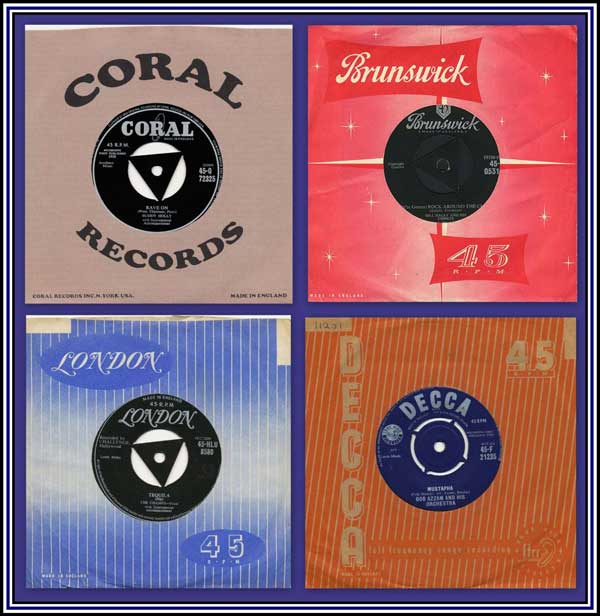
What
should be remembered
about the programmes that
the record
companies produced was
that they were actually
one long advertisement
for the record
companies and that
the point of showcasing
their latest releases
was to peddle their
product. As a result,
the disc jockeys were
expected to cram as many
tunes into the time
slot as possible.
What this meant was the
tunes were rarely, if
ever, played in full.
Listeners would hear just
enough of a
particular record
to tweak their
interest and hopefully
cause them to rush out
and buy it. Obviously, to
kids like me, the cost of
a single was out
of reach and it
wasn’t until I came
across the second-hand
record stalls up
the lane (see Down
the Lane – Buying
records)
that I was able to
find the records
that I wanted at an
affordable price.
Although the minute or
two given to each
tune on Radio
Luxembourg was far
from ideal, it was much
better than the
alternative
…….. nothing!
……. since the B.B.C.
wasn’t playing any
of this music yet.
Although I was grateful
for even a minute of some
classic, I would
nonetheless get incensed
when they interrupted
a particularly
outstanding saxophone or
guitar riff only
to breakaway to a
song that was less
interesting to me.
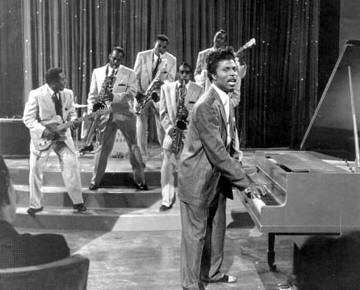 Sadly,
this was not the only
thing that used to
frustrate me with showcase
programmes. In order
to jam as many discs
into the time
slot, the disc
jockeys always cut
the musical
introductions of certain
tunes or else spoke over
them. I always felt that
the songs of Little
Richard suffered the
most from such treatment.
It wasn’t until I conned
an assistant in a record
shop to play Lucille
and later Good
Golly Miss Molly
that I heard those
amazing piano
introductions in full and
without interruption for
the first time. I was blown
away by what I heard
and believed that they
gave those records that
special quality, which
helped turn them into the
undeniable classics that
they are today. Besides
cutting the intro,
one never got to hear
many memorable endings
either. The best
example of this was the
remarkable rhythmic
jamming that serves
to close Little
Richard’s She’s
Got It. Sadly,
this was not the only
thing that used to
frustrate me with showcase
programmes. In order
to jam as many discs
into the time
slot, the disc
jockeys always cut
the musical
introductions of certain
tunes or else spoke over
them. I always felt that
the songs of Little
Richard suffered the
most from such treatment.
It wasn’t until I conned
an assistant in a record
shop to play Lucille
and later Good
Golly Miss Molly
that I heard those
amazing piano
introductions in full and
without interruption for
the first time. I was blown
away by what I heard
and believed that they
gave those records that
special quality, which
helped turn them into the
undeniable classics that
they are today. Besides
cutting the intro,
one never got to hear
many memorable endings
either. The best
example of this was the
remarkable rhythmic
jamming that serves
to close Little
Richard’s She’s
Got It.
Although
not hearing the intros
or the outros
was far from being ideal
in my book, again I will
say that it was still
better than the
alternative!
Just as an
afterthought,
years later when I bought
the CD of Little
Richard’s Greatest
Hits, I was amazed at
the true length of
that final rhythmic
jamming of She’s
Got It, as it was
much, much longer than it
was on the single and, as
a result, has proven to
be even more remarkable.
Without
question, the
records released by
The DECCA Record
Company were my
favourites since these
included those on the London
American label. London
released gem after
gem each week. By the
license of their
records to the London
American label, many
small, and not-so-small independent
record companies in
America were able to gain
access to the British
market and were able to
take advantage of the
distribution and
marketing facilities of DECCA.
In this way, the
listeners in Britain were
introduced to many tunes
that have gone on to be
classics.
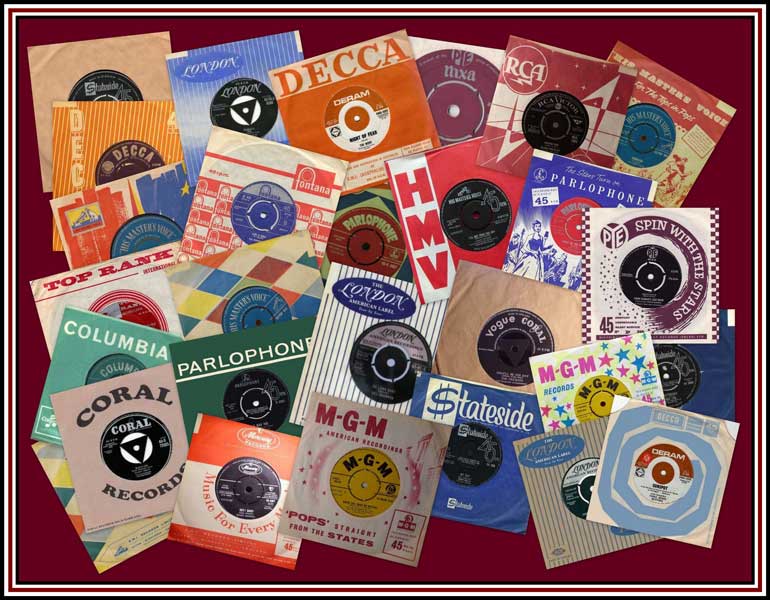
DECCA presented
their wares on Monday and
Wednesday evenings. Their
Disc Jockeys were Jack
Jackson at 10 p.m.
and Pete Murray at
10.30 p.m., both of whom,
to my mind, were the best
of the disc jockeys of
the time. However, I
suspect that my choice is
based mostly on the fact
that they presented London
records. E.M.I. employed
the television
personalities Shaw
Taylor and Muriel
Young. Delightful as
these folks probably
were, they were hardly in
a position to sell the
music and lacked a
certain je ne sais
quoi, as we would
say! I am sorry to say
that I have no idea who
presented the
records of the
other companies. What I
do recall was what was
heard at 9.30 p.m. each
Saturday night and that
was Gus Goldwin’s
Rock-a-billy Party.
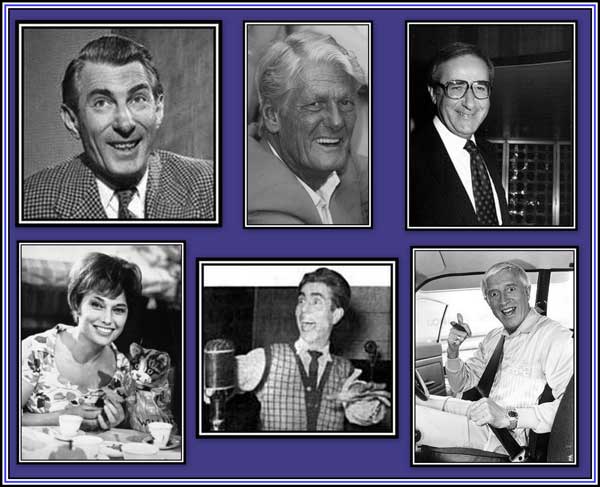
This
programme did not suffer
from being sponsored by
any record company
and so the presenter
was free to play the
very best from all
record labels. In
addition, the disc
jockey played the
whole of a tune –
including any intro and
outro! It was here
that I first heard and
appreciated the brilliant
wit of Chuck
Berry,
the guitar-playing par
excellence of Eddie
Cochran
and the frantic
style of Gene
Vincent.
I
remember one special
night we were treated
to thirty minutes of pure,
unadulterated early Elvis
seasoned with the
occasional Bill
Haley & His Comets.
It was here that I
heard three fantastic
songs by a still very
young, raw and
wild Elvis – Trying
to get to you,
Lawdy
Miss Clawdy
and Mystery
Train.
I have to confess
that I find these songs
to be as exciting today
despite their apparent simplicity
and they remain high
on my list of Elvis
favourites.
When
I listened to Radio
Luxembourg, it was
during the youthful
days of rock
‘n’ roll,
and the British scene
was best described as rudimentary.
There was little original
British Rock and
no one comparable to Elvis
or even Bill Haley
& His Comets. The
first real English
rocker was Tommy
Steele,
but his major
commitment was soon in
becoming an all-round
entertainer rather
than a pure rock
‘n’ roller. The
first British rock
band that I ever
heard was Tony
Crombie and the Rockets,
whom I saw at the old
Finsbury Park Empire. I
think that most of the
members were jazzmen and
were just playing in the
Rockets to earn some
money. There were many
British singers that sang
rock ‘n’
roll but most of the
repertoire was copies of
American songs, and bad
copies at that. We would
have to wait until 1958
when Cliff Richard
and The Drifters (later,
name changed to The
Shadows) came along
and produced what I
consider to be the first real
British rock
‘n’ roll song
of any merit, Move
it.
Although it was NOT
early Elvis – but
still ….. it
wasn’t bad …..
not bad at all!
Despite
the lack of British rock
‘n’ rollers,
there was a wealth of
talent ready to be
heard from America. Even
today, I find many of the
sounds of the ‘50s to
be exciting and
there are some tunes can
still cause the hair on
the back of my neck to
stand up! I defy anyone
to play me a piece of
music – rock,
classical, whatever
– that is as exciting
or as spectacular as
Heartbreak
Hotel!
Besides this, the very
best and greatest rock
’n’ roll –
without any doubt –
was the gems released on
the London American label.
Just about every single
release from this label
at this time was
remarkable and most have
gone on to be a treasure
and a classic.
London
American was a label
where small independent
record companies from
America were able to have
their discs released
in Britain. These
companies were too small
and certainly not wealthy
enough to launch their
own label in the U.K. So,
many companies took
advantage of the
facilities offered by DECCA
and released their
wares on the London
label. Thanks to DECCA,
thanks to London and
thanks to Radio
Luxembourg, I first
heard of the likes of Fats
Domino,
Jackie
Wilson,
Bobby
Bland,The
Coasters,
Jerry
Lee Lewis
and Sam
Cooke
to name but a few
giants of the genre.
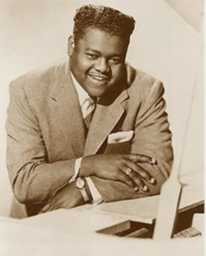
Fats
Domino |
|
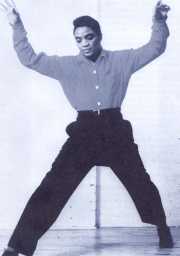
Jackie
Wilson |
|
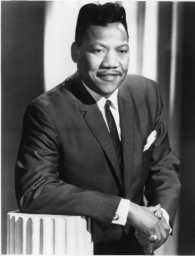
Bobby
Bland |
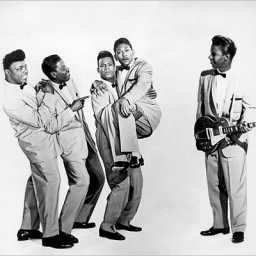
The
Coasters |
|
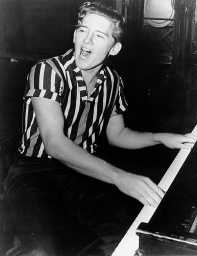
Jerry
Lee Lewis |
|
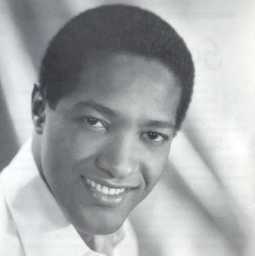
Sam
Cooke |
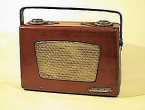 Although
many of the early giants
of rock ‘n’
roll had their
records released on
a number of different
labels in Britain, I have
always felt that it was DECCA’s
London American label
that was responsible for
bringing some of the
greatest tunes to the
British public. Many went
on to become classics,
while so many other great
and wonderful tunes fell
on stony ears and
never received the
recognition that they
deserved. Obviously,
there were a number of
true fans that
discovered them they were
under the covers of their
bed and listening to Radio
Luxembourg on their portable
radios just like me. Although
many of the early giants
of rock ‘n’
roll had their
records released on
a number of different
labels in Britain, I have
always felt that it was DECCA’s
London American label
that was responsible for
bringing some of the
greatest tunes to the
British public. Many went
on to become classics,
while so many other great
and wonderful tunes fell
on stony ears and
never received the
recognition that they
deserved. Obviously,
there were a number of
true fans that
discovered them they were
under the covers of their
bed and listening to Radio
Luxembourg on their portable
radios just like me.
As I have
said, London American was
the label where the
majority of independent
record labels released
their discs in
Britain. Occasionally one
of the other British
labels would do a deal
with an American independent
record label and
get the rights to present
their material. When this
happened, I always felt
that the label would
have been better
represented had it allied
itself with London
American. Columbia did
a deal with Roulette
Records and so got to
release the material of Frankie
Lymon & The Teenagers,
which was remarkable
stuff for its time. Columbia
also had the honour
to release the first
recording by Chuck
Berry
to be released in
Britain, but his label, Chess
Records, quickly
moved to London
American. H.M.V., for
its part, had its share
of American recordings,
with perhaps the best
known being those of Lloyd
Price
and the early Frankie
Avalon,
not to mention the Sun
Records recordings of
Elvis.
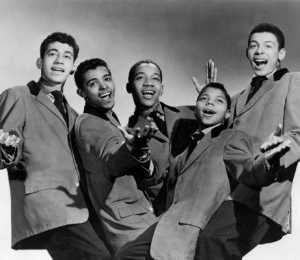
Frankie
Lymon & The Teenagers |
|
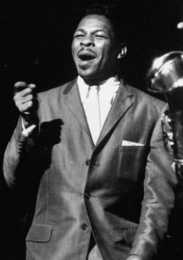
Lloyd
Price |
Radio
Luxembourg played a
very important role in my
upbringing. Thanks
to the various disc
jockeys who spun
the discs, my
exposure to a variety of
forms of music first
begun by my parents and
continued by Paul on
his stall and in his
shop, was continued here.
It should be remembered
that Radio Luxembourg was
a business and in the
business of making money
for its shareholders, and
so, with the passage of
time, as musical
tastes changed, not
only the style of
music changed, but
also the format of
the programmes. This
brought new listeners who
began to tune in to
208 On The Dial, but
indeed, the
times they were
a-changin’!
The B.B.C.
finally realised that
try as they might,
rock ‘n’ roll was
not going away! It
wasn’t just a
fad, a flash in the pan, but
was here to stay. It
began to offer some
rock ‘n’ roll on
the radio and even on
television, where Independent
Television had
already gone. Despite
this, the young of
Britain were not
satisfied! They wanted
and demanded more music
that they liked to be
played and, in the late
1960’s, a number of pirate
radio stations housed
on ships bobbing up
and down in the
English Channel or off
the coast of The
Netherlands sprang up and
began playing so-called popular
music, as it was
described in B.B.C.
parlance. Eventually,
the B.B.C. couldn’t
withstand this onslaught
and caved in to
the wants of the
British public. B.B.C.
Radio was
reorganised. The old Light
Programme on medium
wave underwent the
most radical of changes,
as it became Radio One
and had its own set
of disc jockeys who
were employed to present the
latest hits and
supposedly rock
classics to the
public. This move ended
the pirate radio
stations and heralded
the slow and long
demise of the English
Service of Radio
Luxembourg.
Although
Radio Luxembourg, as
people like me knew
it, has gone, it is
not forgotten. It lives
on, like so many things
experienced in our lives,
in our memories where it
will continue to hold a
special place. Whenever a
special favourite is
heard, the listener can take
out a memory and
enjoy it again along with
the music! Hail,
hail rock ‘n’
roll!!! What more
needs to be said?
 . .
|